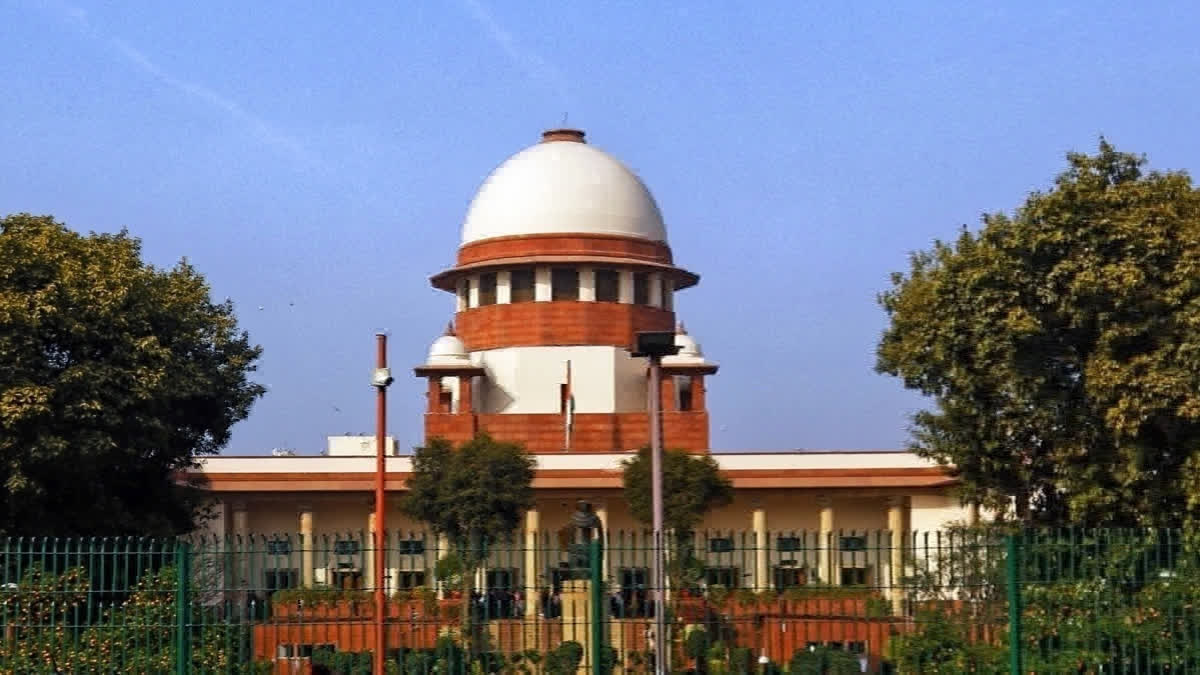New Delhi: The Supreme Court has said, as a minimum safeguard, the state authorities while ordering eviction of an alleged unauthorized occupant should follow a fair procedure, which would include a proper exercise conducted for demarcation of the land in the presence of the party who is likely to be affected.
A bench comprising Justices Dipankar Datta and Prashant Kumar Mishra made it clear that a citizen has no right to encroach public land. "If indeed any citizen has encroached on public land and such encroachment is not otherwise entitled to be regularized under any law, a citizen has no right to sit on public land," said the bench, in a judgment delivered on November 28.
However, the bench stressed that in case of an encroachment, the minimum safeguard that is required of the "state while ordering eviction of an alleged unauthorised occupant is to follow a fair procedure".
The bench said this would include a proper exercise conducted for demarcation of the land in the presence of the party who is likely to be affected if an order of eviction were passed.
The bench said a proper show cause notice under section 4 of the Himachal Pradesh Public Premises and Land (Eviction and Rent Recovery) Act, 1971, indicating the ground(s) on which action is proposed, which must be served together with any document that the state desires to rely on during the course of the eviction proceedings.
"A just and proper consideration of the response of the noticee to the show cause notice, sufficient opportunity to lead evidence, and application of mind to all the materials on record leading to an order of eviction, if at all, it is required to be passed. If an appeal is preferred, it is needless to observe that the provisions of the 1971 Act governing disposal of such appeals also need to be adhered to strictly apart from natural justice principles," said the bench.
The apex court's judgment came on a batch of appeals filed by Babu Ram and others challenging the order passed by the High Court. The High Court had declined to interfere with orders of eviction passed against them by the district collector for being unauthorised occupants of forest land.
The bench said that the collector’s order does not meet the standards of a speaking order that could be regarded as valid. "There is no reason, far less cogent and tenable reason, appearing on the face of the order of the Collector. Such order merely records the various stages through which the proceedings passed and the Collector's ipse dixit that Babu Ram is an unauthorised occupant of forest land. The order of the Collector does not meet the standards of a speaking order that could be regarded as valid. The same does not record what the claims and counterclaims are," said the bench.
The top court said the order, without a doubt, is clearly in breach of principles of natural justice and principles of fairness in administrative action, and also the divisional commissioner's order fares no better in the case. The bench said the order of the collector falls totally short of a being a "speaking order" and this finding of the commissioner is clearly indefensible.
The bench directed the respondent-State, through its appropriate department, to undertake an appropriate exercise for demarcation of forest land upon written notice to Babu Ram.
"It would be desirable if such an exercise is completed as early as possible, preferably within two months from date. Similarly such exercise shall be conducted in respect of the other appellants who are also alleged to be in occupation of forest land, unauthorizedly," it said.
The bench said if the event of any of the appellants, despite being served written notice, abstaining from attending the proceedings, the exercise of demarcation shall proceed ex-parte against him.
"The report of demarcation shall be served on each of the alleged unauthorised occupants of forest land, if the respondent-State proposes to proceed against them under Section 4 of the 1971 Act. The noticees shall be granted a fortnight’s time to respond whereafter, the Collector shall take the proceedings to its logical conclusion in consonance with law as well as in the manner observed in this judgment within such further time as may be found necessary and reasonable by him," said the bench.



